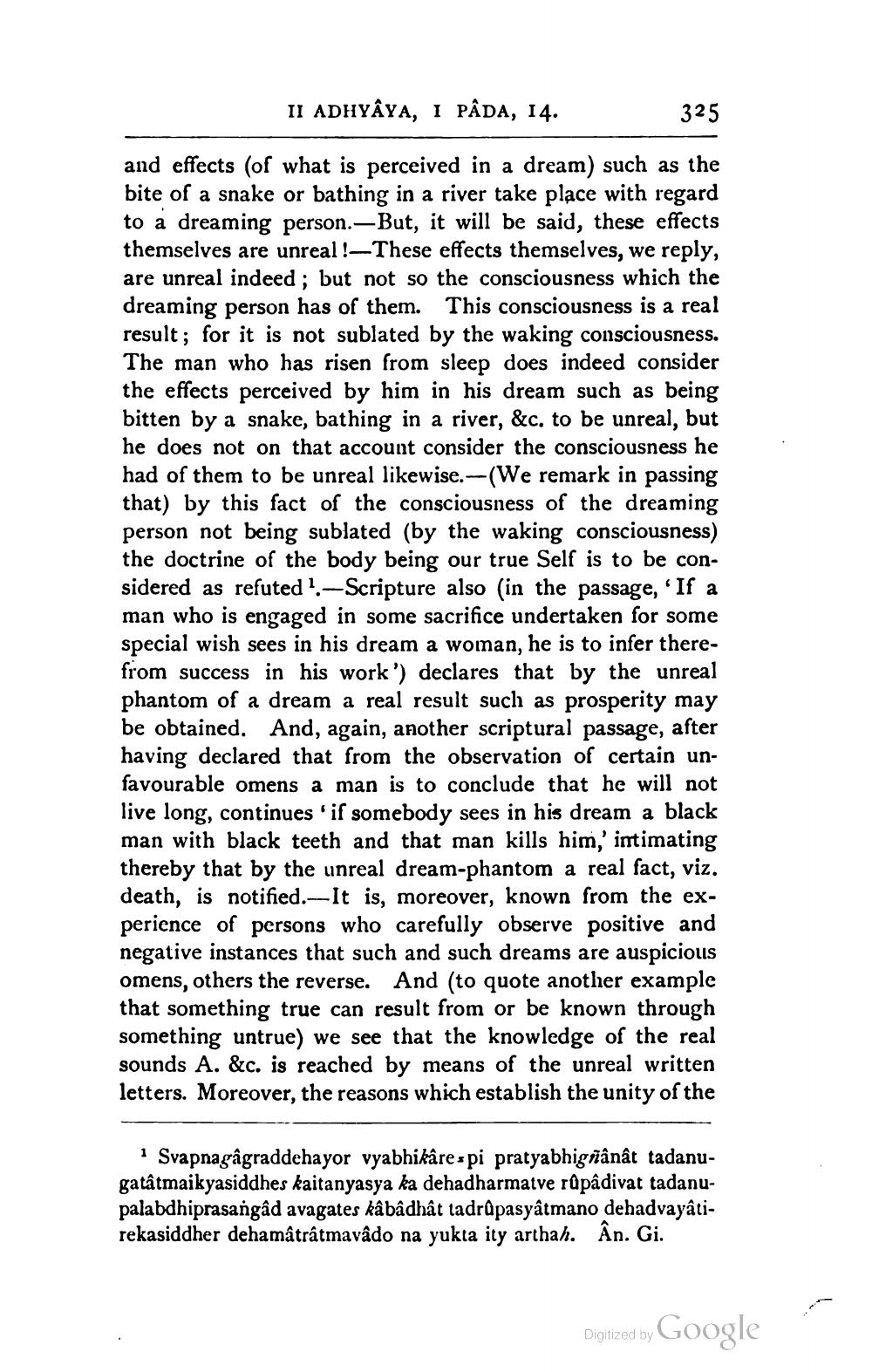________________
II ADHYAYA, I PÂDA, 14.
325
and effects (of what is perceived in a dream) such as the bite of a snake or bathing in a river take place with regard to a dreaming person.—But, it will be said, these effects themselves are unreal!—These effects themselves, we reply, are unreal indeed; but not so the consciousness which the dreaming person has of them. This consciousness is a real result; for it is not sublated by the waking consciousness. The man who has risen from sleep does indeed consider the effects perceived by him in his dream such as being bitten by a snake, bathing in a river, &c. to be unreal, but he does not on that account consider the consciousness he had of them to be unreal likewise.--(We remark in passing that) by this fact of the consciousness of the dreaming person not being sublated (by the waking consciousness) the doctrine of the body being our true Self is to be considered as refuted .-Scripture also in the passage, 'If a man who is engaged in some sacrifice undertaken for some special wish sees in his dream a woman, he is to infer therefrom success in his work') declares that by the unreal phantom of a dream a real result such as prosperity may be obtained. And, again, another scriptural passage, after having declared that from the observation of certain unfavourable omens a man is to conclude that he will not live long, continues 'if somebody sees in his dream a black man with black teeth and that man kills him,' intimating thereby that by the unreal dream-phantom a real fact, viz. death, is notified. It is, moreover, known from the experience of persons who carefully observe positive and negative instances that such and such dreams are auspicious omens, others the reverse. And to quote another example that something true can result from or be known through something untrue) we see that the knowledge of the real sounds A. &c. is reached by means of the unreal written letters. Moreover, the reasons which establish the unity of the
* Svapnagagraddehayor vyabhikârespi pratyabhigñânât tadanugatâtmaikyasiddhes kaitanyasya ka dehadharmatve rûpâdivat tadanupalabdhiprasangad avagates kâbâdhât ladrapasyâtmano dehadvayâtirekasiddher dehamâtrátmavado na yukta ity arthah. An. Gi.
Digitized by Google
Ile




